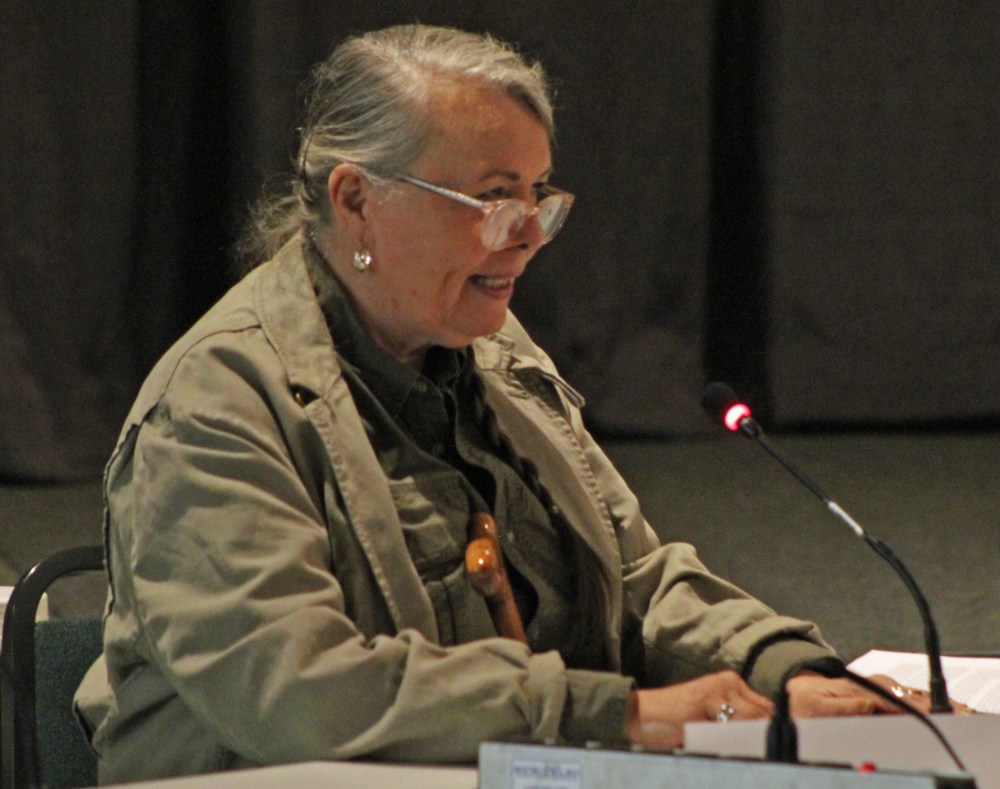Gibson runs in Wolseley to better Green Party odds
Advertisement
Hey there, time traveller!
This article was published 10/08/2023 (710 days ago), so information in it may no longer be current.
After running twice in La Verendrye and twice in Steinbach as the Green Party of Manitoba candidate, new party leader Janine Gibson has decided the fifth time’s the charm – in Wolseley.
Gibson still lives south of Steinbach, but sees the best opportunity of electing Manitoba’s first Green MLA in the Winnipeg riding where she last lived in the 1980s.
“I have a young person who is interested in running in La Verendrye. I was very pleased with the 10 percent at one point I got from La Verendrye,” said Gibson, who placed second behind PC MLA Dennis Smook in the 2016 election.

“The amount of effort that I can put forward, I can help the people of La Verendrye as an MLA from Wolseley. I’m going to continue the work that I’m doing there for my neighbours; I’m still going to be living there,” continued Gibson.
Before being elected Green Party leader in March, Gibson ran in seven federal elections in Provencher and four provincial elections. She split her provincial runs with two in La Verendrye and two in Steinbach.
“I think that I have a team that’s strong enough that what we’re going to do in the legislature will benefit all Manitobans,” said Gibson.
She was speaking for this interview from Estevan, Saskatchewan. Her day job is working as an organic farming consultant. Gibson also co-founded the solar-powered co-op farm where she lives.
The effort to get a Green MLA elected is a primary objective for her. The Greens finished a very close second to the NDP in the last two elections with candidate David Nickarz earning 36 percent of the vote in 2019 and losing by just 400 votes in 2016. Donovan McIntosh, who lost his bid for the party’s leadership in March to Gibson, agreed to step down as Wolseley candidate.
“Manitoba needs a Green MLA. This dynamic between the Conservatives and the NDP is not good for us. So I think the more diversity we have in the legislature, the healthier we can get some dialogue, some cooperation going,” said Gibson.
She has pledged to run a candidate in all 57 ridings this October.
Gibson describes her party as fiscally conservative and socially progressive.
The three main selling points in this election are creating green jobs to address the climate emergency and boost the economy, end welfare by creating a guaranteed basic income, and implementing proportional representation.
She insists there is great opportunity in an environmentally-focused rural economy.
“Just about everybody I know says ‘my job would be more green if I could do this, or if this could change.’ So I say it’s time we listen to Manitobans; listen closely to what improves quality of life in their work, and massively increase the people working in Manitoba,” said Gibson, who brought up farm equipment and green manufacturing as obvious areas to improve.
She said proportional representation would make votes count more, including Conservative ones.
“I’m at heart a conservative. I believe in conserving, I want to conserve what we have and that’s what I work hard to do,” said Gibson.
“If we had proportional representation, they (conservatives) would have had more representation,” she added.
“It makes every vote count in a way that encourages dialogue.”
Gibson said the best way to avoid having parties focus on Winnipeg and other urban centres in a proportional system that rewards success in more populated areas was to spread people around. She pointed to the province she was calling from as an example.
“I have long thought there needed to be more equitable population distribution. We do better in smaller towns. And I like the way Saskatchewan is laid out. There’s more investment in a greater number of towns. I don’t understand why we haven’t done that more in Manitoba, and I think that’s a real way forward in the future,” said Gibson.
